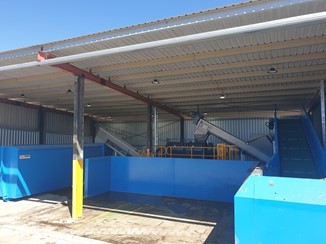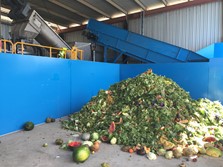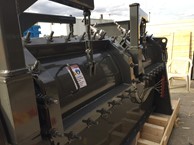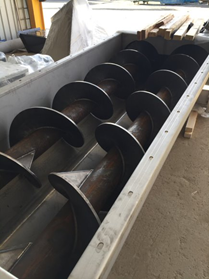Our food depackaging service is being rolled out to a national retail customer across more than 60 stores in QLD and will be trialled for use in municipal kerbside FOGO collections in Brisbane.
Our food depackaging service is being rolled out to a national retail customer across more than 60 stores in QLD and will be trialled for use in municipal kerbside FOGO collections in Brisbane.
In September 2020, Cleanaway completed the installation of a new food waste and packaged organics recovery plant in Willawong. The plant features food depackaging technology similar to our unit in Victoria, that takes large volumes of food or liquid packaged in plastic, liquid paperboard or cardboard and separates the organic material to be recycled.
For food manufacturers and other generators of food waste in Queensland, depackaging technology presents an exciting opportunity to optimise waste systems by further reducing waste to landfill.
Senior Business Development Manager Tamara Hinchey said, “We’re pleased to be expanding our recycling capabilities with a service that closes the loop on organic material in packaged food products. By sending less organic material to landfill, customers can not only increase their sustainability rates but reduce the cost of doing business through a reduction in landfill costs.”
“In its initial stages, our food depackaging service is being rolled out to a national retail customer across more than 60 stores. We look forward to making the service available to all customers including bakeries, cafes and wholesalers in the near future.” said Tamara.

Pictured: The new depackaging unit in Willawong was installed and operational in September this year
How our food depackaging unit works
The food depackaging unit accepts everyday items such as:
• Bakery items
• Canned food and drinks
• Fruits and vegetables
• Dairy products
• Pet food
• Boneless red meat
• Beverages including tea, coffee, and juice
• Biscuits, chips and confectionery

Pictured: Organic product ready to be loaded into the depackaging unit

Pictured: A close up look at the separation chamber
Packaged food and liquid waste are loaded onto the food packaging unit where it travels to a separation chamber. In the chamber, paddles of various sizes produce a squeezing effect that separate the packaging from its contents.

Pictured: Paddles inside the separation chamber separate packaging from the organic content
The resulting ‘porridge’ of organic material is turned into nutrient-rich compost to nourish soil and the water that is produced is reused within the plant. We’re exploring opportunities for recovering even more resources from the organic material including energy-from-waste technology where electricity is created from the anaerobic digestion process.
Watch our food depackaging unit in action in Victoria below.
In Australia, over 5 million tonnes of food ends up in landfill each year. Cleanaway offers an industry-leading organics recovery service using state-of-the-art technology and facilities to recover resources from organic waste. Speak to us for a service, including a secure product destruction service that protects your brand name and confidentiality.